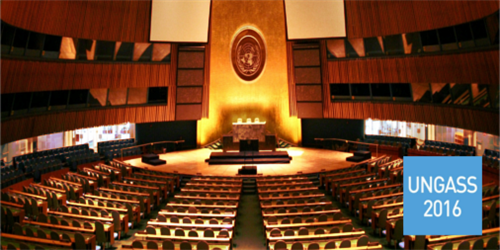Remarks at the Informal Interactive Stakeholder Consultation for the UNGASS
by Yury Fedotov, Director General/Executive Director of the United Nations Office of Drugs and Crime.
11 Feb 2016Allow me to begin by commending the Civil Society Task Force for their work in bringing grassroots NGOs to this important event ahead of the General Assembly special session on the world drug problem.
I welcome this informal consultation, which is very much in the spirit of the inclusive preparatory process that have been led by the CND Board Tasked with UNGASS Preparations, with the support of UNODC.
Diverse stakeholders, including civil society as well as UN entities and international and regional organizations, have enriched the process with their thought-provoking contributions.
A dedicated UNGASS website and regular events held in New York, Geneva and Vienna have helped to foster broad participation and debate on the multifaceted and complex challenges posed by drugs.
The UNGASS is also an important milestone on the way to 2019, when the international community will review the implementation of the Political Declaration and Plan of Action on the world drug problem.

Moreover, with the adoption and launch of the 2030 Agenda for Sustainable Development, we have a holistic and forward looking framework which underscores the importance of health and inclusive justice to development, and which can also help to address these challenges as part of integrated assistance.
As you know, the UN advocates a comprehensive and balanced international drug policy that focuses, among other things, on prevention, treatment and care.
As the UN Secretariat's lead entity in assisting countries to address the challenges of drugs and crime, UNODC is supporting Member States to put such approaches into action, through our global, inter-regional, regional and country programmes, our quality research and analysis, and our network of field offices.
In all this work we cooperate closely with our UN and other partners, including, of course, civil society.
Together, we have supported the international community to take concrete steps towards a balanced approach between supply and demand reduction, taking into account the original spirit of the conventions.
This includes expanding evidence-based prevention, as well as treatment, social rehabilitation and social integration programmes, and considering alternatives to conviction or punishment for appropriate minor offences.
It also includes strengthening criminal justice responses to disrupt organized crime networks, as well as promoting alternative livelihoods and increasing access to essential controlled medicines, while preventing their diversion, abuse and trafficking.
More concretely, we have worked with you to increase access to evidence and rights-based treatment and care in more than 40 countries around the world, from Cambodia to Serbia, and from Brazil to Tanzania.
In Afghanistan, we are helping to build the capacity of over 10 civil society partners providing drug treatment services.
Globally, UNODC has worked with the Vienna NGO Committee, the Civil Society Task Force, the Union for International Cancer Control and Human Rights Watch to increase access to controlled drugs for medical purposes.
We are building on the work we are doing in this area with local NGOs in Ghana to start similar activities in Timor-Leste and the Democratic Republic of the Congo this year.
We have supported the meaningful engagement of civil society organizations to advance evidence-based HIV prevention, treatment and care for people who use drugs and people in prison settings.
Click here to read the full article
Doctors can lead the way to healthier drug policies – join IDHDP now
Share this on: